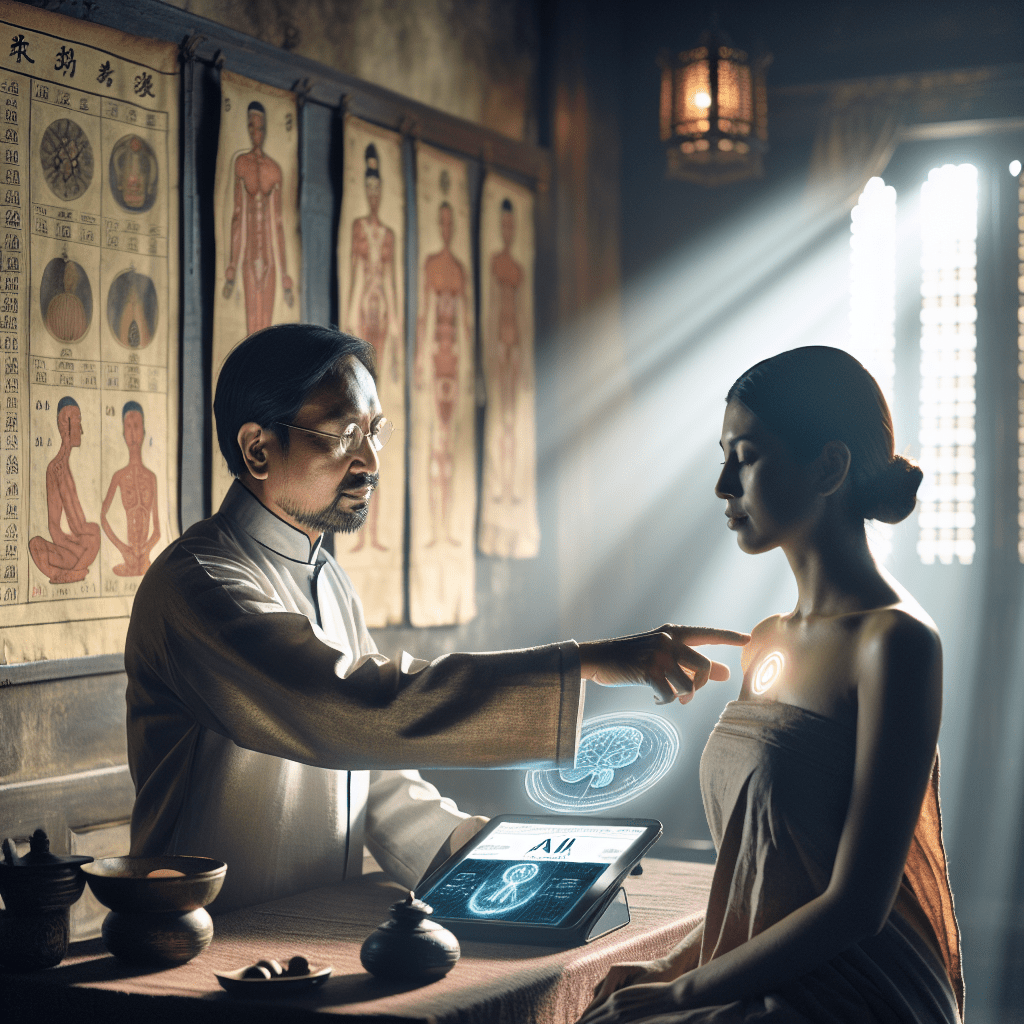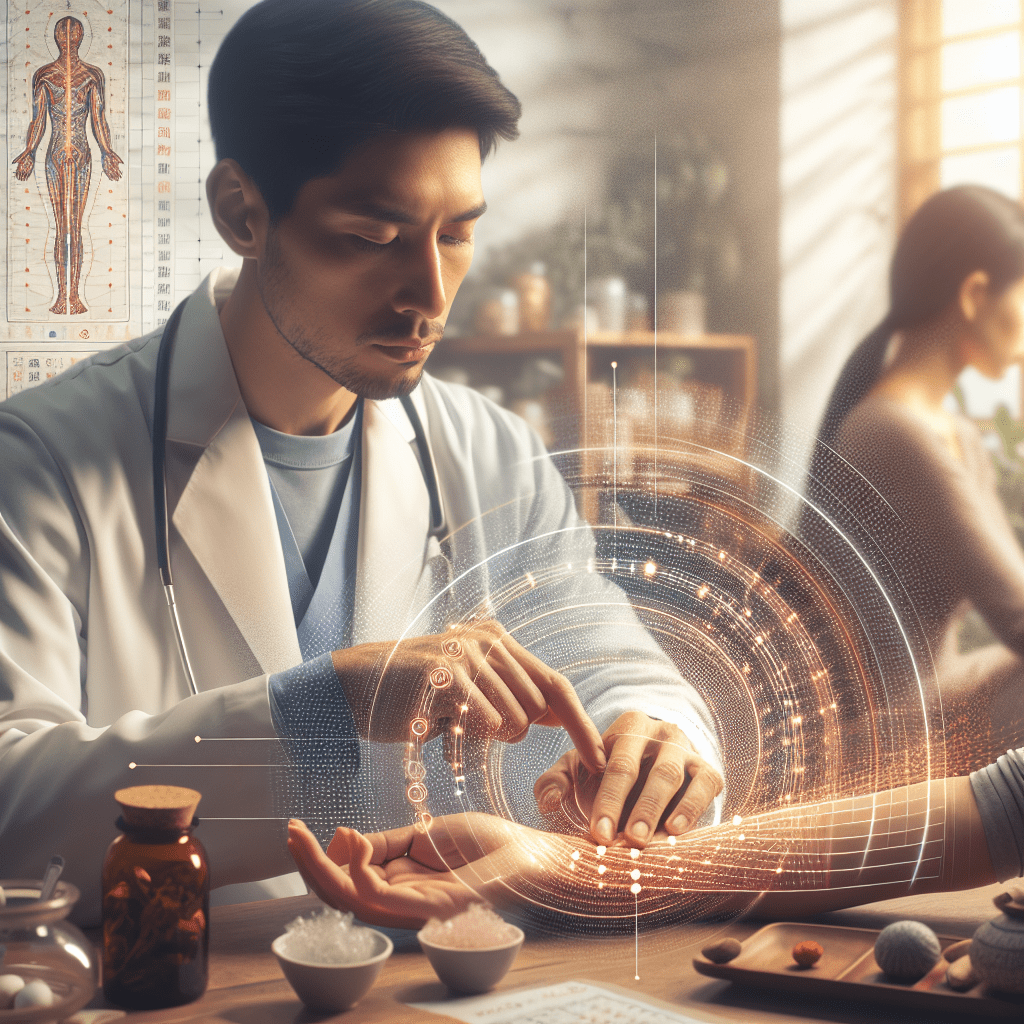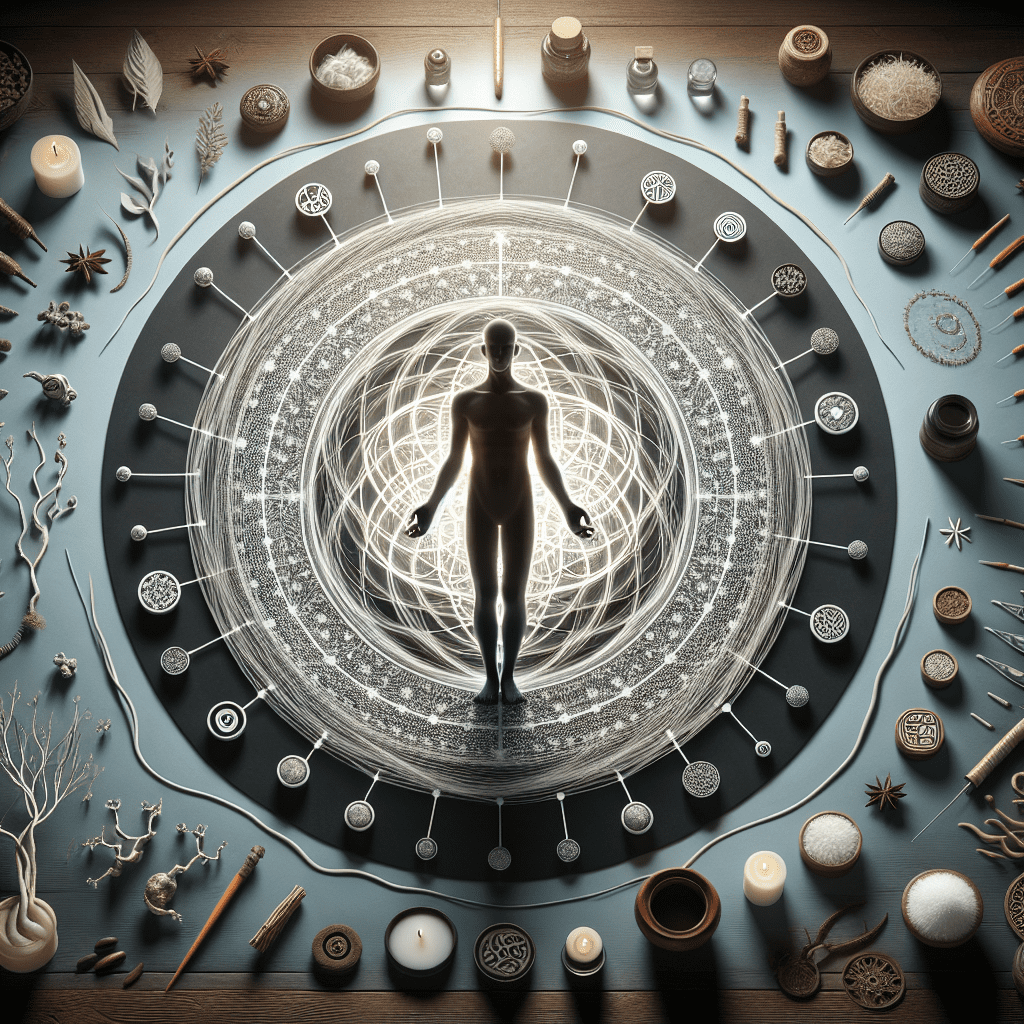When ancient wisdom meets cutting-edge technology, something truly remarkable happens. That’s exactly what’s occurring with Digital TCM, a revolutionary approach to healthcare that blends the time-tested principles of Traditional Chinese Medicine with the power of modern digital innovations. Imagine having 2,000 years of Eastern healing wisdom right at your fingertips, personalized just for you through artificial intelligence. This isn’t science fiction—it’s happening right now, and it’s changing lives in ways that might make you reconsider everything you thought you knew about healthcare.
Digital TCM represents a fascinating bridge between two worlds: the holistic, nature-based healing traditions of the East and the data-driven technological advancements of the West. Instead of choosing between these approaches, Digital TCM asks: why not have the best of both? For those seeking alternatives to conventional medicine or looking to complement their current treatments with more natural, personalized options, this innovative fusion offers exciting possibilities.
Let’s explore five incredible health journeys that showcase how Digital TCM is transforming healthcare and empowering individuals to take control of their wellbeing in ways they never thought possible.
Finding Freedom from Chronic Pain: Sarah’s Story
Sarah had lived with debilitating back pain for over a decade. “I tried everything,” she recalls. “Pain medications, physical therapy, even surgery. Nothing provided lasting relief.” Her medicine cabinet was filled with prescriptions, but the side effects often left her feeling worse than the pain itself.
When a friend suggested Digital TCM, Sarah was skeptical but desperate. Through an AI-powered platform, she completed a comprehensive health assessment based on Eastern medicine principles. The system analyzed her constitutional type according to Five Element Theory and identified imbalances that might be contributing to her pain.
What made the difference was how the Digital TCM system created a truly personalized approach. It recommended specific acupressure points Sarah could stimulate at home, guided her through targeted tai chi movements designed for her specific pain pattern, and suggested herbal formulations that addressed both the symptoms and root causes of her discomfort.
The platform tracked her progress through daily check-ins, adjusting recommendations based on her feedback. “What amazed me was how the system seemed to understand the way my pain changed with weather, stress, and even my menstrual cycle,” Sarah explains. “It wasn’t just treating pain—it was treating me as a whole person.“
After three months, Sarah reported a 70% reduction in pain and had eliminated two of her prescription medications. Her acupuncturist, who partners with the Digital TCM platform, receives real-time updates on Sarah’s condition between in-person sessions, allowing for more effective treatments.
Recent research supports Sarah’s experience, with studies showing that combining acupuncture therapy with AI-powered Remote Patient Monitoring can dramatically improve outcomes for chronic pain sufferers. This digital approach makes the benefits of Eastern medicine accessible to those who might not otherwise have consistent access to TCM practitioners.
Calming the Digital Mind: Jason’s Mental Health Journey
Jason’s anxiety had always been manageable—until the pandemic hit. Suddenly isolated and overwhelmed, his occasional worries escalated into constant panic attacks and insomnia. “I felt like my mind was racing 24/7,” he remembers. “I couldn’t sleep, couldn’t focus on work, and was starting to withdraw from everyone.”
Traditional medication offered some relief but left Jason feeling disconnected and foggy. That’s when he discovered a Digital TCM app that offered a different approach to mental wellness.
The app began by assessing Jason’s specific anxiety patterns through the lens of Eastern medicine, which views mental health as deeply connected to physical health. Based on his responses, the AI created a personalized program combining guided tai chi sessions, breathwork techniques, and meditation practices—all accessible through his smartphone.
“What I loved was that it wasn’t a one-size-fits-all approach,” Jason says. “On days when my anxiety was primarily showing up as restlessness, it would guide me through active tai chi movements. When I was experiencing more fear-based anxiety, it would offer specific breathing techniques and meditations designed to ground and center me.”
The app also suggested dietary adjustments based on TCM principles, explaining how certain foods could either exacerbate or calm his particular type of anxiety. It tracked sleep patterns through his smartwatch and adjusted daily recommendations accordingly.
Perhaps most valuable was the app’s ability to provide support exactly when Jason needed it. “Having tools right in my pocket meant I could do a quick five-minute breathwork session before a stressful meeting or a guided meditation right when I felt panic building.”
After six weeks, Jason’s sleep quality improved by 60%, and his anxiety episodes decreased in both frequency and intensity. “What’s most powerful is that I now have skills I can use anywhere, anytime. It’s not about depending on the app forever—it’s about learning a new way to relate to my mind and body.”
This integration of ancient wisdom with digital convenience reflects exactly what platforms like EASTCHI AI strive to achieve—making Eastern approaches to wellness accessible and adaptable to modern life.
Healing from the Inside Out: Maya’s Digestive Transformation
Maya had struggled with irritable bowel syndrome (IBS) for years, dealing with unpredictable flare-ups that affected every aspect of her life. “I never knew when symptoms would strike,” she says. “I was afraid to eat at restaurants, anxious about traveling, and constantly canceling plans with friends.”
Conventional treatments provided only temporary relief, and Maya grew frustrated with approaches that only addressed her symptoms rather than the underlying causes. When she discovered a Digital TCM platform specializing in digestive health, she decided to give it a try.
The platform’s assessment went far beyond typical questions about bowel habits. It examined Maya’s sleep patterns, emotional states, energy levels throughout the day, and even the connection between her symptoms and environmental factors like weather changes—all elements considered crucial in Eastern medicine’s approach to digestive health.
Based on this comprehensive view, the AI system developed a personalized plan that included specific dietary recommendations aligned with TCM principles. “It wasn’t just about eliminating trigger foods,” Maya explains. “The app taught me about the energetic qualities of different foods and how they interact with my specific constitution.”
The digital platform provided Maya with guided visualizations focused on the gut-brain connection and taught her self-massage techniques for specific acupressure points that support digestive function. It also recommended herbal formulations designed to restore balance to her digestive system rather than simply suppressing symptoms.
What made the approach particularly effective was its digital tracking capabilities. Maya could easily log meals, symptoms, stress levels, and other factors, allowing the AI to identify patterns she hadn’t noticed herself. “It showed me connections I never would have made on my own—like how certain symptoms appeared two days after eating specific food combinations or during particular weather changes.“
After four months of following her personalized plan, Maya experienced an 80% reduction in IBS episodes. “Beyond just symptom relief, I feel like I understand my body in a completely new way,” she shares. “I’m not just managing a condition—I’m actively cultivating my health.”
Maya’s experience highlights how Digital TCM excels at addressing complex conditions by examining the interconnected nature of physical symptoms, emotional states, environmental factors, and lifestyle habits—an approach that perfectly aligns with Eastern medicine’s holistic perspective.
Heart Health Reimagined: Robert’s Cardiovascular Journey
At 58, Robert received concerning news during his annual physical: his blood pressure was dangerously high, his cholesterol levels were problematic, and his doctor warned him that he was heading toward serious cardiovascular issues if he didn’t make changes immediately.
“The doctor wanted to start me on multiple medications right away,” Robert recalls. “While I understood the concern, I wanted to explore whether I could improve my health naturally first.” His daughter, a health tech enthusiast, suggested he try a Digital TCM platform specializing in cardiovascular health.
The platform paired with Robert’s smartwatch and fitness tracker to monitor his heart rate, sleep patterns, and activity levels. After a comprehensive assessment based on TCM principles, the system identified specific imbalances contributing to his cardiovascular risk.
What surprised Robert was how personalized the recommendations were. “It wasn’t just general advice like ‘exercise more’ or ‘eat less salt,'” he explains. “The program designed specific movement practices based on my energy levels and constitutional type, recommended precise herbs that support heart health according to Eastern medicine, and even provided guidance on which emotions might be affecting my heart function.”
The digital platform guided Robert through gentle qi gong exercises specifically selected to improve circulation and reduce stress. It also created a nutrition plan based on the TCM understanding of foods that nourish the heart system. Through his wearable devices, the AI could track improvements in his heart rate variability, sleep quality, and other biometrics.
“I appreciated how the system explained everything in terms I could understand,” Robert says. “It taught me why certain foods were beneficial for my specific condition according to Eastern medicine, and how particular breathing techniques could help regulate my nervous system and reduce blood pressure.”
After three months, Robert returned to his doctor, who was amazed by the improvements. His blood pressure had normalized, his cholesterol levels had improved significantly, and other cardiovascular risk markers showed positive changes. While his doctor still recommended monitoring his condition, he no longer pushed for immediate medication.
Research supports Robert’s experience, with studies showing that TCM approaches can lead to significant improvements in hypertension, coronary heart disease, and heart failure when properly applied. The digital component adds precision and accessibility, making these ancient practices relevant and applicable in modern healthcare.
Sweet Balance: Linda’s Diabetes Management
Linda’s type 2 diabetes diagnosis at age 45 came as a shock. Despite following her doctor’s recommendations for medication and dietary changes, her blood sugar remained poorly controlled, and she experienced frequent energy crashes and mood swings.
“I felt like I was on a blood sugar roller coaster,” Linda explains. “The conventional approach wasn’t working for me, but I didn’t know what else to try.”
A colleague suggested a Digital TCM platform that specialized in metabolic health. Unlike her previous experiences with healthcare, the Digital TCM assessment examined Linda’s entire health picture—sleep patterns, stress levels, emotional wellbeing, digestion, and energy fluctuations throughout the day.
Based on this comprehensive view, the AI developed a personalized plan that went beyond simple carbohydrate counting. It incorporated specific herbs traditionally used in Eastern medicine to support healthy glucose metabolism, taught Linda tai chi movements designed to improve insulin sensitivity, and recommended foods that, according to TCM principles, specifically balanced her constitutional type.
The platform connected to Linda’s continuous glucose monitor, allowing the AI to identify precise patterns between her activities, foods, stress levels, and blood sugar responses. “It was fascinating to see how the system could predict when my glucose would spike based not just on what I ate, but also on how I slept the night before or whether I was experiencing stress.“
The platform also guided Linda through specific visualization and breathwork practices designed to support pancreatic function from an Eastern medicine perspective. “These weren’t just relaxation techniques—they were targeted practices specifically for metabolic health.”
After six months, Linda’s HbA1c (a measure of long-term blood sugar control) had improved significantly, and with her doctor’s supervision, she was able to reduce her medication dosage. More importantly, her energy levels stabilized, and she no longer experienced the extreme highs and lows that had previously disrupted her life.
“What I value most is that this approach treated my diabetes as part of my overall health picture, not as an isolated condition,” Linda reflects. “It gave me tools to actively participate in my healing rather than just passively taking medication.“
The Future of Integrated Healthcare
These five stories represent just the beginning of what’s possible when ancient healing wisdom meets modern technology. Digital TCM isn’t about rejecting conventional medicine but rather expanding our understanding of health and healing to include the best of both worlds.
What makes Digital TCM particularly powerful is its ability to deliver personalized care at scale. While traditional TCM practitioners have always customized treatments to individual patients, digital platforms can make this level of personalization accessible to people regardless of geographic location or economic status.
Platforms like EASTCHI AI exemplify this approach, leveraging artificial intelligence to analyze individual constitutional types through Five Element Theory and provide seasonal dietary guidance based on Eastern medical principles. By embracing the concept of food as medicine and viewing health through a holistic lens, these digital solutions offer alternatives to the symptom-focused approach that often characterizes Western healthcare.
As we face growing healthcare challenges globally—from chronic disease management to mental health crises—perhaps the solution isn’t choosing between Eastern and Western approaches but finding innovative ways to integrate the wisdom of both traditions. Digital TCM represents an exciting frontier in this integration, offering personalized, accessible, and holistic approaches to health that honor the body’s natural healing capacity while leveraging the precision and convenience of modern technology.
The revolution is here—and these five stories suggest it might be time to rethink everything we thought we knew about modern medicine.




